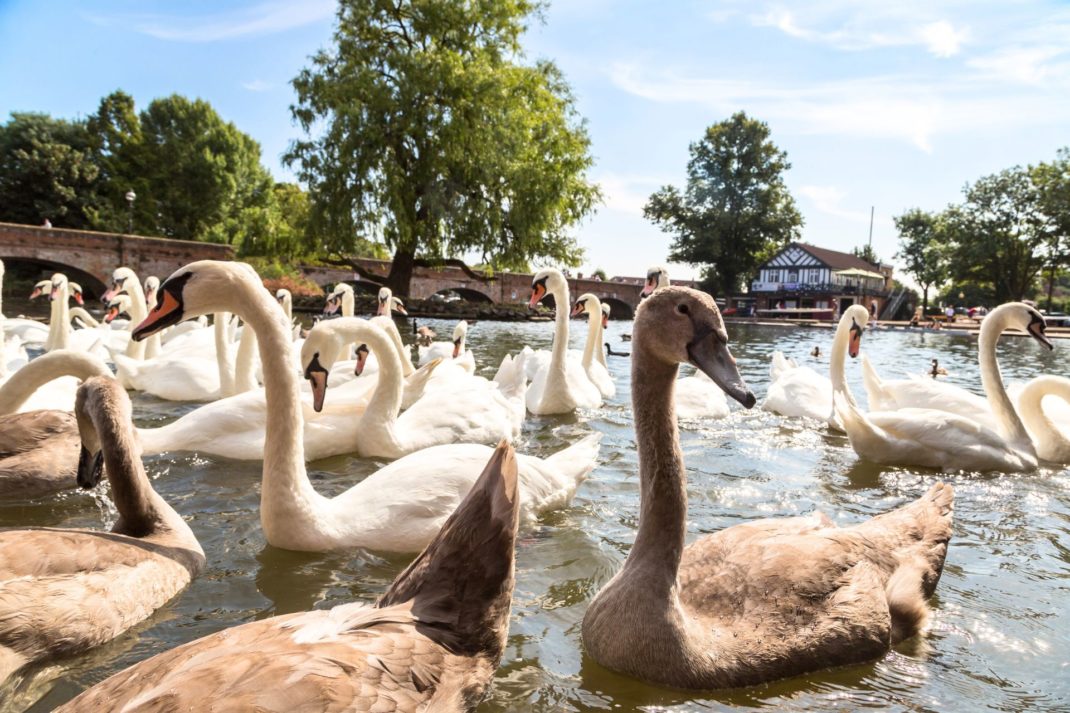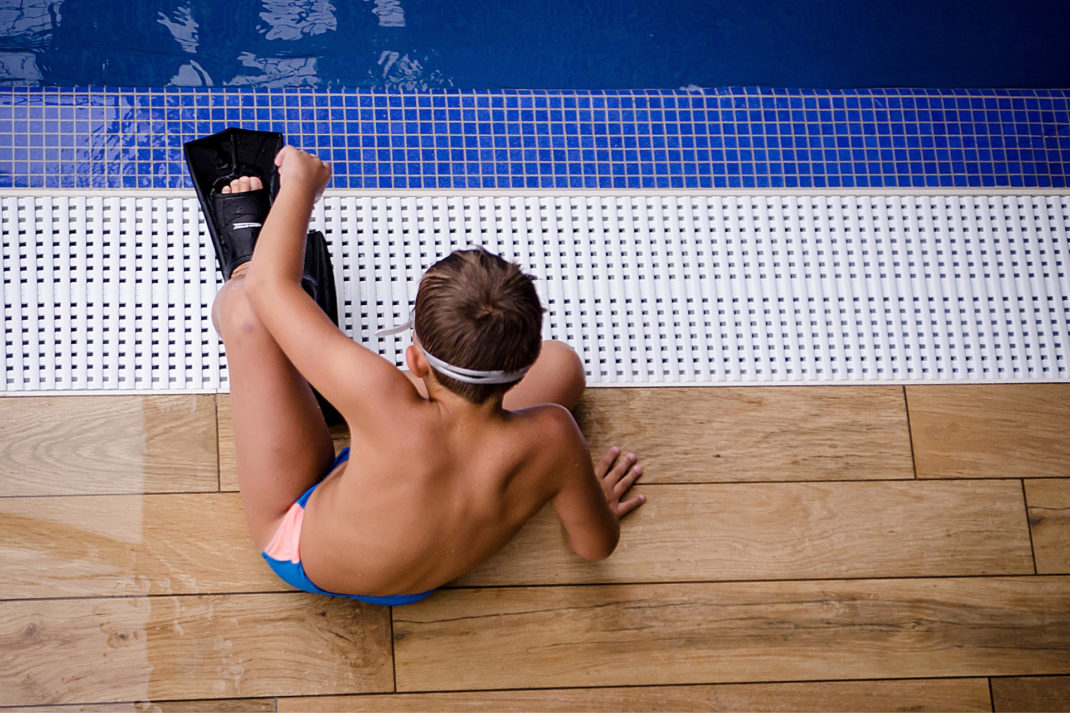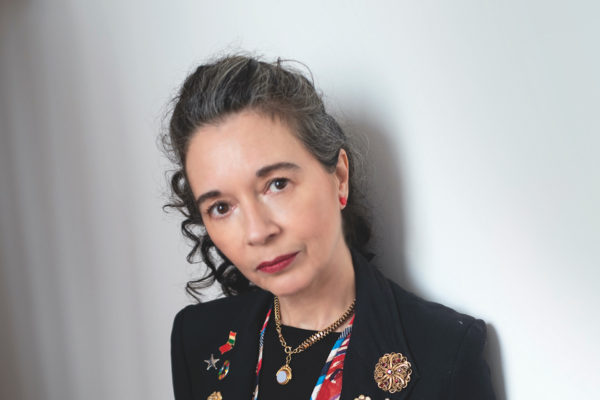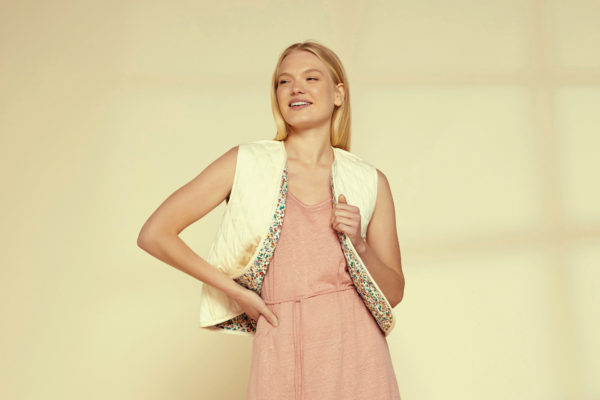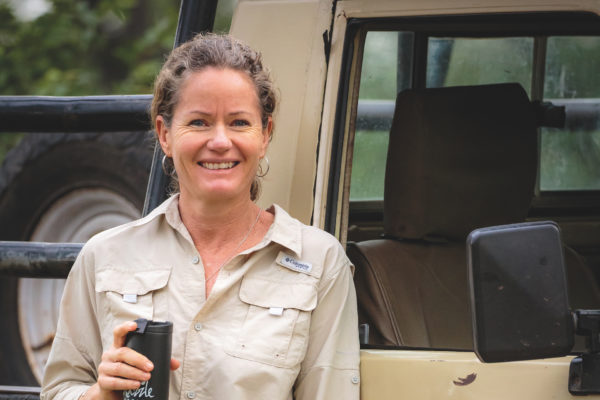My Little Green Book: Zainab Salbi
By
1 year ago
The woman amplifying the conservation work of other women
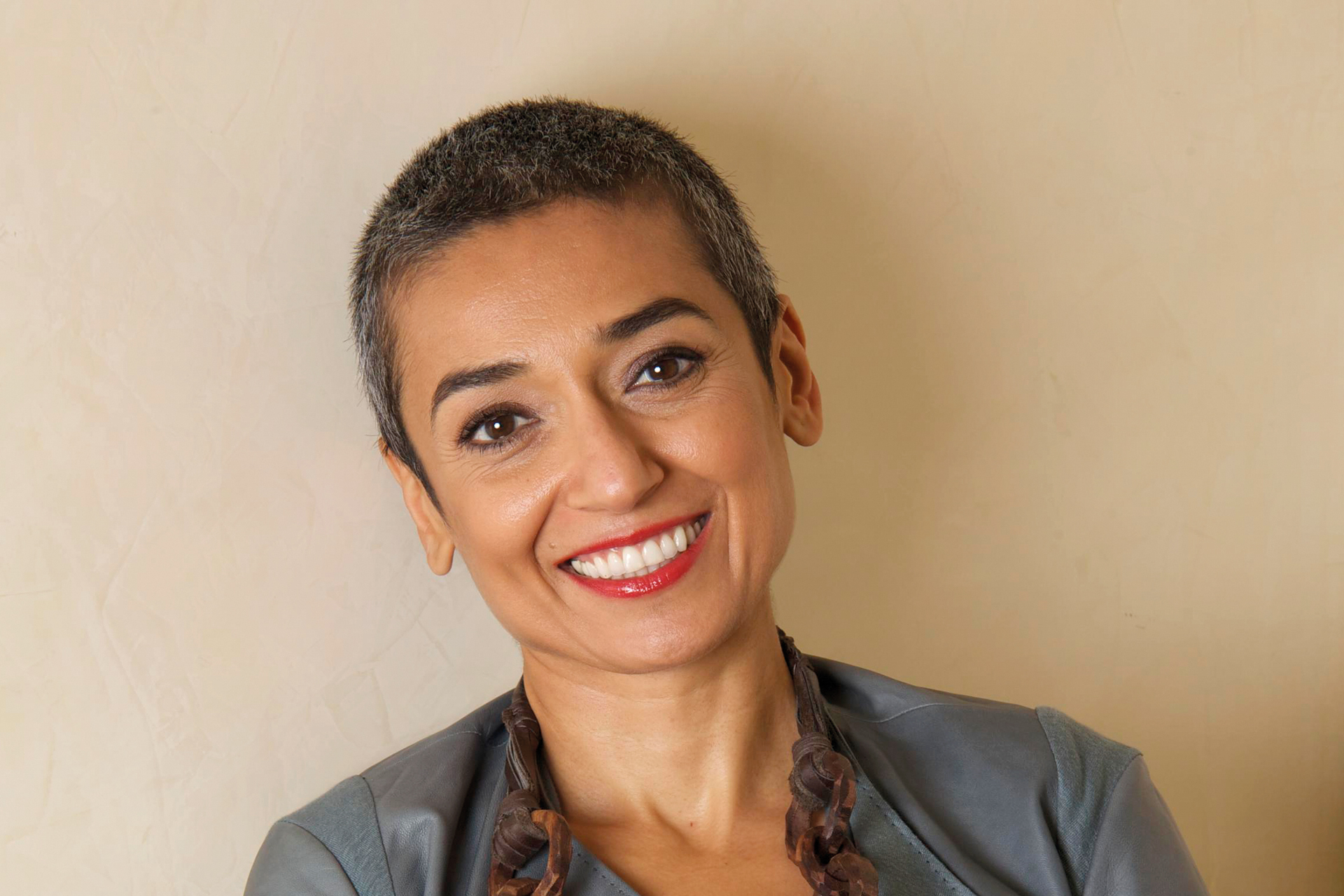
Zainab Salbi, the Iraqi-American human-rights activist, is helping women to re-green our planet, says Lisa Grainger.
Interview with Zainab Salbi

Zainab Salbi speaks onstage at Daughters For Earth, Vital Voices and International Center For Research On Women Campaign Launch on September 19, 2023 in New York City. (Photo by JP Yim/Getty Images for Daughters For Earth)
You follow the feeds of any humanitarian organisations, you’ll probably know the face of Zainab Salbi. She’s the 54-year-old, happy-faced, shaved-headed, gold-hooped activist who is at every fundraiser, every women’s empowerment event, every awards ceremony: on People magazine’s list of 25 women changing the world, or Foreign Policy Magazine’s ‘100 Top Global Thinkers’, a friend of Hillary Clinton, Angelina Jolie and Donna Karan. She’s the fiercely interrogative journalist who, if you’re a man doing something you shouldn’t be, you’d be scared of. And, if you’re a feminist with a heart, you can’t help but admire.
At the age of just 23, on hearing about genocide in Bosnia, she flew out to help the country’s women, a trip that led to her founding the NGO Women for Women International, which has now raised over $150 million for female survivors of conflict. During the Arab Spring, she moved to the Middle East to front The Nida’a Show (which means ‘The Calling’) on TV, to give a voice to Arab women. And during the #MeToo movement she fronted a five-part programme on PBS to try to ensure that the revelations resulted in systemic change.
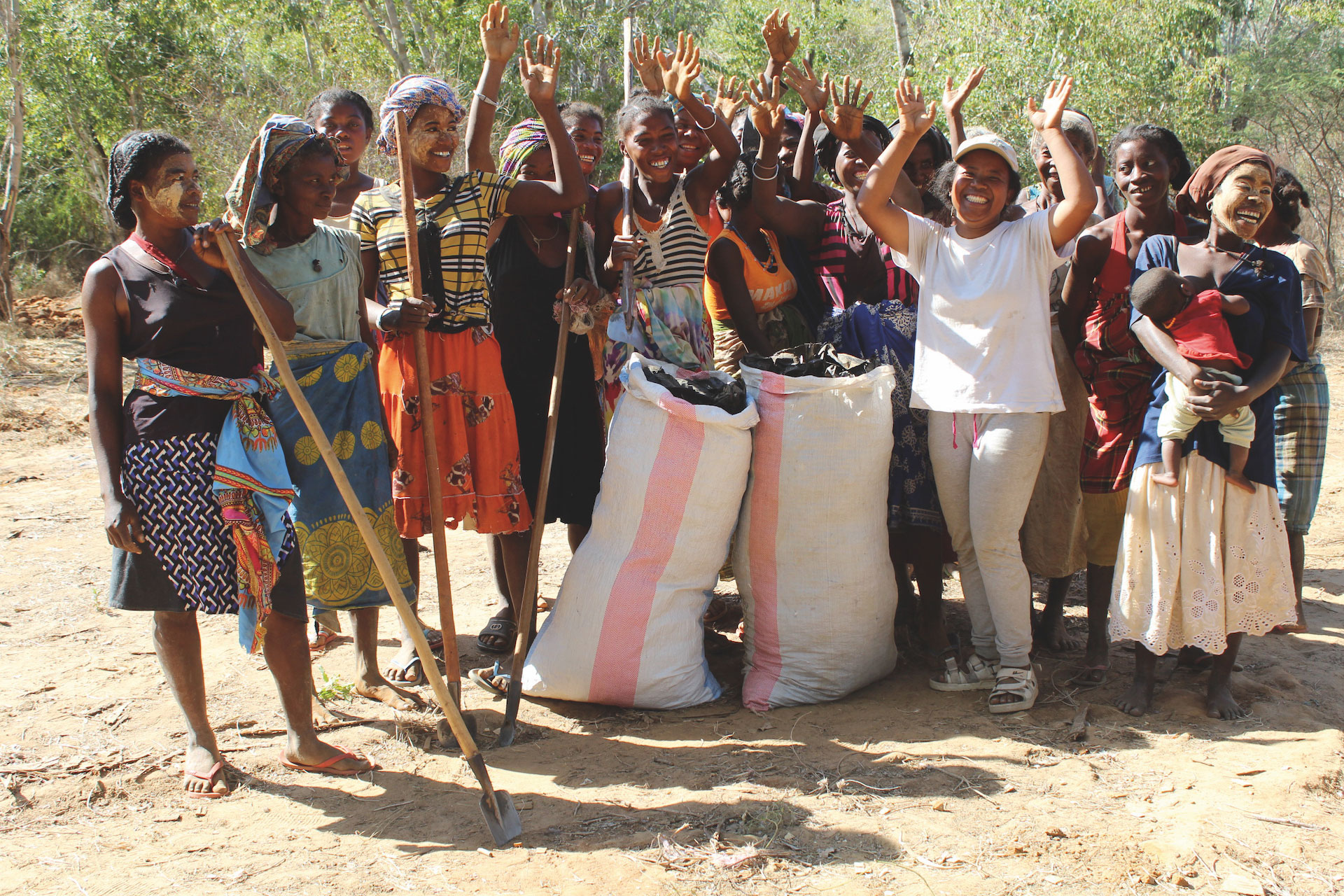
Women working to reforest Madagascar, supported by Daughters For Earth
Raised in Iraq, Zainab’s father was Saddam Hussein’s pilot, and her family lived in fear of the dictator. When she was 19, and her family’s only way of getting her out of the country was by marrying her to an American, they took it. What they didn’t know is that he’d be abusive, a story which she tells in her memoir, Between Two Worlds.
The combination of her tough life experiences has been her making though, she says. Because she has lived through trauma. She knows abuse. She’s felt the effect of wars first hand. And because, through contacts made in the media, in NGOs, in humanitarian circles, she has learnt how to use that knowledge to best effect.
Last year she co-founded her latest NGO, Daughters For Earth, to link women around the world to fight climate change. Much of the narrative is male-dominated, she says. ‘It’s Elon Musk stuff: about tech, batteries, cars, factories. But we all know what we really have to do is set aside 50 percent of our planet as wilderness.’ And it’s women who are so often the people out on that land, and its natural protectors. ‘So, using the wisdom and the expertise of indigenous women, youth leaders, conservationists, and scientists, we’re going to enable them to make the changes they need to.’
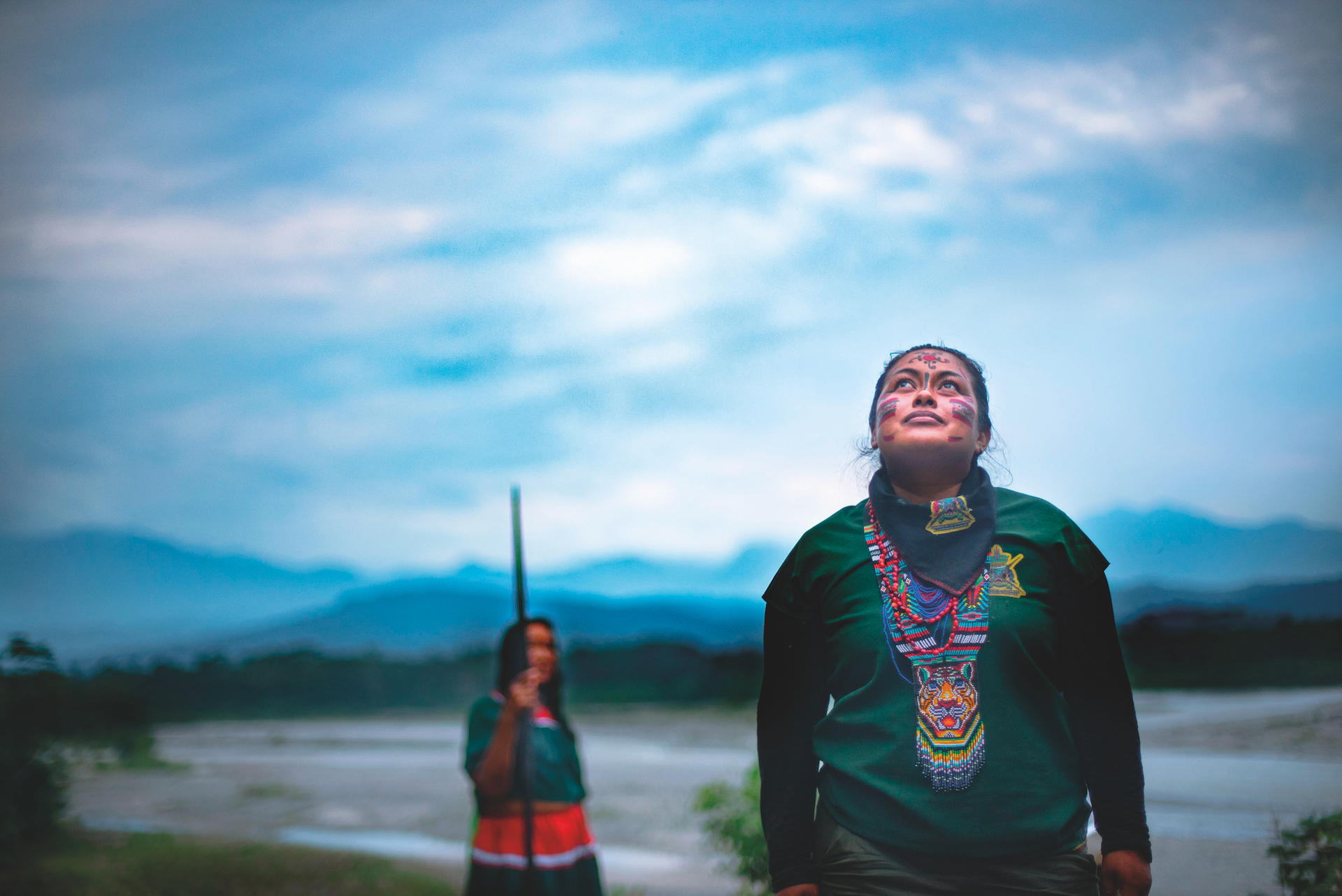
Daughters For Earth supports and amplifies the efforts of women all over the world who are at the forefront of conservation
With her co-founder Jody Allen – the founder of Wild Lives Foundation – Zainab plans to raise and deploy $100 million to women to protect the planet. So far they’ve given $1.2 million to women in 17 countries to do projects from protecting a river in Chile to restoring a baobab forest in Madagascar. Everyone around the world can get involved, she adds. A jeweller has made hummingbird-shaped earrings – based on the fable, I Will Be a Hummingbird, by Wangari Maathai – whose profits will feed into the project. The website lists ways to live greener lives, and how to create community-based action. In addition, in March they’ll go on a trip organised by Journeys With Purpose and Soul Safaris to show western women who’ve never seen the wilderness alongside women who are protecting it. ‘Only once you’ve felt nature do you connect with it,’ she says. ‘And only once you connect will you protect it.’

